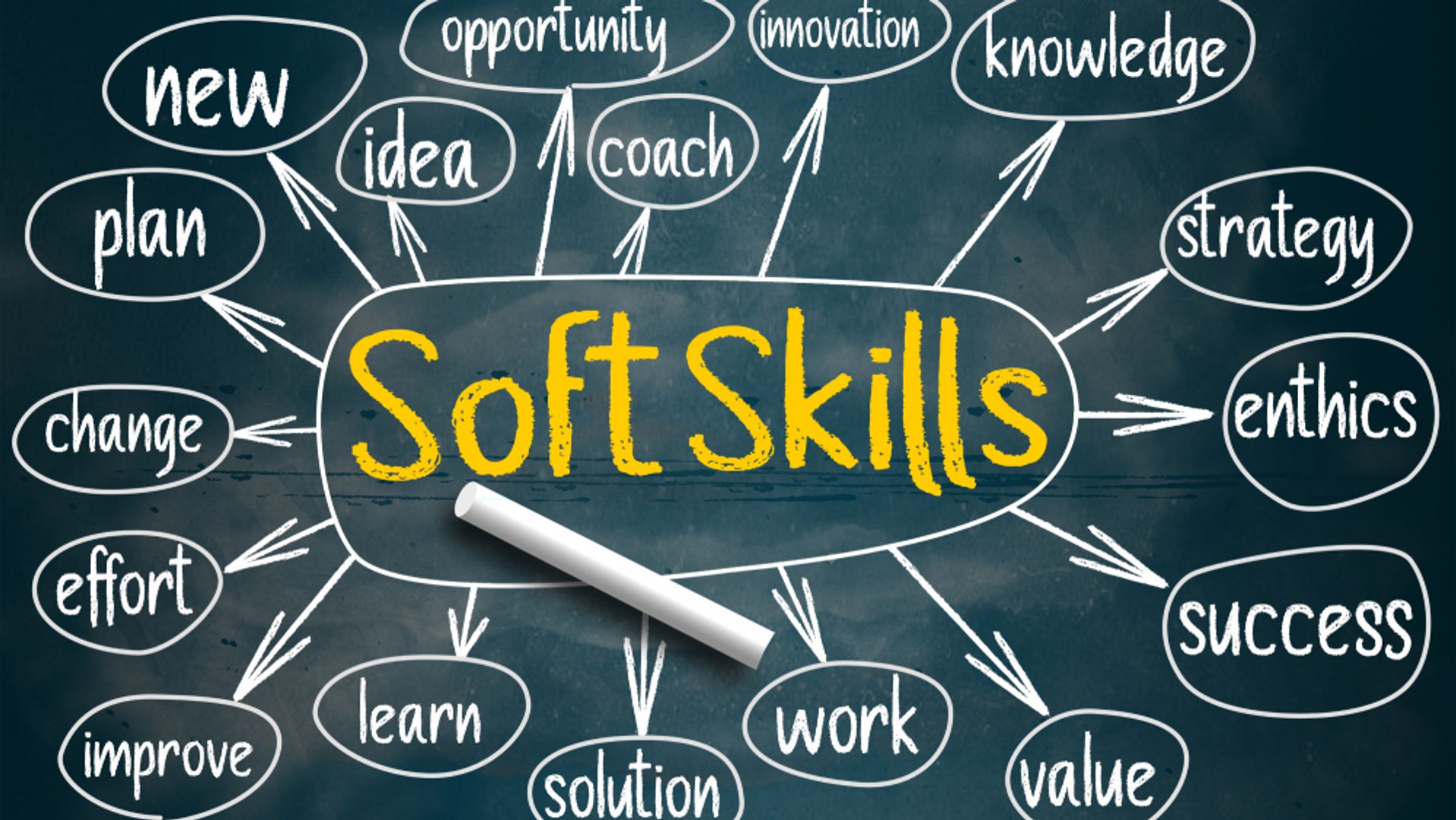Soft skills have become increasingly important in today's workforce, with employers placing a higher value on these interpersonal skills than ever before. In fact, a recent LinkedIn survey found that 59% of hiring managers believe soft skills are difficult to find in candidates. So what exactly are soft skills? These personal attributes are instrumental in facilitating effective and harmonious interactions with others, making individuals a valuable asset to any team or organization.
Soft skills are essential for personal and professional success. They are a combination of interpersonal and communication skills that allow individuals to effectively work with others in any setting. In this document, we will discuss the top 10 soft skills in demand and how you can develop and showcase these skills to stand out in your job search.
What Are Soft Skills?

Soft skills are invaluable assets that can be applied to any professional role. They encompass work-related behaviors, habits, and personality traits that often enhance an individual's performance, irrespective of their technical expertise. To unlock your full potential and thrive in your career, it is crucial to embrace these skills. By doing so, you will set yourself up for success, enabling personal and professional growth.
Soft Skills Vs Hard Skills

While hard skills are teachable and measurable abilities that are specific to a particular job, soft skills are transferable across various roles. While hard skills may land you an interview, it's your soft skills that play a crucial role in securing the job and thriving in your career. A candidate with excellent technical expertise but poor interpersonal skills is less likely to be hired than someone with a balance of both soft and hard skills. While hard skills are undoubtedly important, possessing exceptional soft skills can truly distinguish you from the competition.
Hard skills, often known as quantifiable abilities, may range from Photoshop mastery to emergency care expertise. Hard skills are often gained through Education, certifications, professional experience, and training.
Soft skills, also known as people skills, are the combination of social and interpersonal abilities, character qualities, and professional attitudes required by all occupations. Soft talents can be acquired via life events or as personality qualities.
Top 10 Soft Skills in Demand
1. Time Management

Effective time management is a critical skill for optimizing productivity. In today's fast-paced work environments, employers highly value individuals with exceptional time management abilities. These skills enable better resource utilization and timely meeting of deadlines, making you an invaluable asset to any organization. To improve your time management skills, try setting specific goals, creating a schedule or routine, and learning how to delegate tasks effectively.
Some time management subskills include:
- Stress control
- Organizing
- Prioritizing
- Planning
- Setting objectives
2. Team Work

Teamwork is an invaluable soft skill that empowers you to thrive in collaborative environments and achieve project goals. In today's interconnected industries, working effectively within a team is not just important, it's crucial. Showcase your ability to successfully collaborate, manage conflicts, foster cooperation, and exchange ideas. As you progress in your career, being a member of multiple teams within larger organizations becomes increasingly common, underscoring the significance of strong team-playing abilities.
Teamwork abilities include the following:
- Problem-solving and leadership
- Collaboration
- Coordination
- Exchange of ideas
- Mediation
3. Digital Literacy

Including Microsoft Office on a résumé is no longer sufficient. Employers actively seek individuals who possess the ability to seamlessly adapt to various digital tools. Whether it's mastering a new task management system, a design tool, or even navigating a digital business card, being proficient in these areas is crucial in today's professional landscape.
Given the diverse range of digital technologies utilized by organizations, it is impractical to possess expertise in all of them. However, by showcasing your digital literacy skills, you can convince employers that your ability to rapidly learn new technologies outweighs any specific tool you may not have used before.
4. Adaptability

Among the top 10 skills in demand, your adaptability indicates how effectively you can embrace and adjust to change. Companies and work environments are always changing: new team members join, old ones exit, businesses are purchased or sold, and so on. Consequently, it is imperative to possess the ability to flexibly navigate through diverse work scenarios.
Adapting to changing settings is critical, as we have all seen with the transition to remote work. Being adaptable involves being able to operate in a variety of settings. It also entails swiftly picking up new abilities and adapting to changes in the job. Here are some examples of adaptability skill sets:
- Calmness
- Self-management
- Analysis
- Optimism
- Self-motivation
5. Critical Thinking

Employers are more interested in candidates' capacity to think critically. As a result, critical thinking questions will frequently be included in interviews.
The ability to creatively, logically, and effectively tackle challenges by drawing on prior experience, research, and available resources is truly fascinating. Showcasing this skill through an example, such as discussing it in an interview, can highlight your critical thinking abilities. Share a time when your company successfully addressed a difficult situation by applying these problem-solving skills.
6. Leadership

Leadership is characterized as the ability to coach, train, and guide others. Employers actively seek individuals with leadership potential in any domain for two compelling reasons:
- Employees who possess strong leadership qualities demonstrate proactive initiative and a commitment to fostering the company's growth.
- Employees who excel in leadership skills have the potential to ascend to higher-level management positions in due course.
Even if you're not currently in a leadership position, there will inevitably be occasions where you must step up and take charge. Demonstrating your ability to effectively manage people and collaborate within a team will undoubtedly leave a lasting impression on employers. Cultivating strong leadership skills encompasses the following key attributes:
- Management abilities
- Honesty
- Mentorship
- Selflessness
- Open-mindedness
7. Interpersonal Communication

Interpersonal skills are concerned with how successfully you connect with others, maintain relationships, and leave a favorable impression on those around you. Collaborating in teams, effectively connecting with others, and adeptly resolving conflicts are all essential skills in the workplace. Effective interpersonal communication is an indispensable skill for professional growth. As you progress, the ability to collaborate seamlessly with others becomes increasingly vital. Embrace this opportunity to enhance your career trajectory and make a lasting impact.
Interpersonal skills include:
- Empathy
- Humor
- Networking
- Tolerance
- Diplomacy
8. Creativity

This is perhaps the most underappreciated soft skill since it takes someone imaginative to identify the need for others who are, and most people aren't that creative.
Creativity is often linked to disciplines like art and design, but it is a broad concept that includes various sub-skills, from questioning to experimenting. Consequently, professionals from all fields can derive value from developing their creative abilities, not just artists.
Creativity does not imply becoming an artist; rather, it entails being inventive and imaginative in solving challenges at work. Here are a few instances of creative abilities:
- Mind-mapping
- Imagination
- Experimentation
- Questioning
- Innovation
9. Communication

Effective communication is the ability to transmit and share ideas and thoughts proficiently, making it a highly sought-after soft skill across all industries. Employers place great value on individuals who possess this skill, as it fosters clear and concise expression of thoughts and facilitates understanding among team members. to fluently speaking the language. The following are the most frequent communication skills:
- Communication through speech
- Communication in writing
- Presentation
- Constructive criticism
- Listening actively
10. Work Ethics

Work ethic refers to respecting one's work and putting out the effort required to produce results. It's a soft skill that recruiters will value in virtually every job you apply for.
Employers want workers that show responsibility, are honest and can perform the job correctly the first time. Because managers lack the time and resources to babysit, this is a talent that is demanded of all employees. Some examples of soft skills connected to work ethic are:
- Responsibility
- Discipline
- Dependability
- Commitment
- Professionalism
Conclusion
In conclusion, having a solid set of soft skills is essential in today's job market. Employers are constantly looking for candidates who possess these key abilities to contribute to their company's success and growth. By showcasing your adaptability, critical thinking, leadership, interpersonal communication, creativity, and work ethics skills, you will undoubtedly stand out among other candidates and increase your chances of landing your dream job. So make sure to continually develop and highlight these soft skills in all aspects of your professional life, as they will be invaluable to you throughout your career journey. Keep adapting, keep learning, and keep growing!


